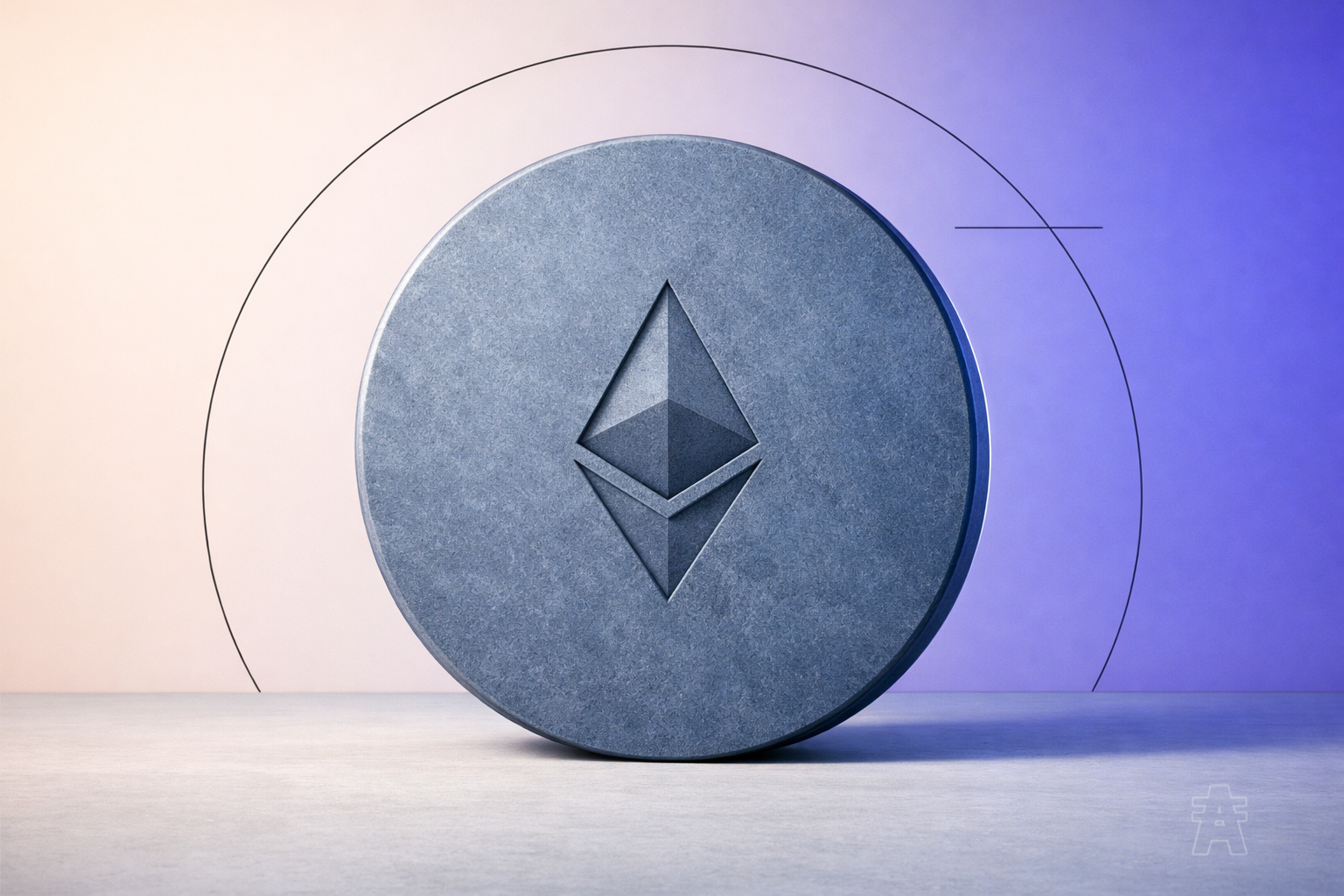Table of Contents
This article provides insight into algorithmic and high-frequency crypto trading landscape of 2023, explaining how this type of software actually works, its use cases, and how it can help individuals and companies with a need for trading automation solutions succeed in the cryptocurrency field.
Let’s start with the basics first, before we take a deeper dive into the matter and offer you some concrete advice and examples of crypto algo trading software.
What is an algorithm?
An algorithm is a rigorously pre-defined command sequence that is used to execute certain software computations or solve a specific problem. In simpler terms, an algorithm (“algo” for short) can instruct a computer on how to treat specific data. These algorithms are also used in automated or high-frequency crypto trading. Crypto algorithms can vary greatly in complexity, from very basic to incredibly elaborate constructs. The former refers to generic trading bots while the latter may include methods like machine learning and artificial intelligence to make the most out of their trades and increase efficiency and profitability.
What is cryptocurrency high-frequency trading?
High-frequency trading (HFT) in crypto refers to the frequent and fast-paced trading of cryptocurrencies, sometimes also referred to as quantitative crypto trading. Due to the high speed and frequency at which this has to happen, it is generally automated, meaning trades are executed through specially coded computer software that trades based on pre-determined data sets and inputs. What these algorithms used in HFT crypto trading are instructed to do, depending on the intention and the goals of the users.
How can algorithms and algo trading be used in crypto?
In the cryptocurrency space, algorithmic trading software can be used to automate trades. This can benefit traders in a multitude of ways, depending on their specific goals and strategy. Naturally, most crypto traders aim to make a profit when trading, but others aim to stabilize the market, like token projects needing to automate liquidity to support their token market, or simply to not lose money in a highly volatile market environment such as cryptocurrencies. In any case, using adequate trading automation software has become the state of the art in today’s crypto world.
To successfully develop and run crypto algorithms, a combination of great technical and analytical, as well as economic (or “cryptonomic”) and IT skills are necessary. The number of ways algorithms can be used to automate crypto trades is basically near infinite and it’s crucial to know one’s goal to be able to choose the right crypto trading algorithms and software providers.
Here is an overview of the most common purposes of using automated algorithmic trading in crypto:
Crypto market making
The main aim of crypto market making is liquidity provision, which is crucial to such an emerging market if it wants to survive or even thrive in a highly competitive and volatile field. For this purpose, trading algorithms and high-frequency trading software are key. Crypto market makers can manage order flow for tokens by implementing algorithms to automatically buy and sell the token at specific prices based on predetermined criteria, for example, trading volume and price. This can help to smooth out the price movements of the token and reduce volatility. By providing liquidity on a crypto exchange, market makers can help to maintain a tight “spread” between bid and ask price points, which means the difference between the price at which a token can be bought and sold. which makes it easier for market participants to buy or sell the desired asset. It is essential to making a token market more resilient and sustainable. Exchanges also generally employ market makers for algorithmic and automated crypto trading on their platforms.
Crypto arbitrage
Algorithms can also be a means for automating crypto arbitrage trading. Simply put, arbitrage is a term used to describe the act of buying an asset in one marketplace and then selling it on a different one to make a - usually small but significant - profit. Algorithmic trading automation can help speed this process up immensely, thereby greatly increasing its profitability, thus being infinitely more efficient than manual arbitrage. This can be done on centralized as well as decentralized exchanges.
Crypto scalping
Just like arbitrage, scalping is another increasingly popular trading method. It is chosen by crypto traders who aim to make a profit from tiny market movements, that require very fast and reactive trade execution. The obvious if not necessary choice for such trades, which have to happen in a matter of minutes, seconds, or less, are using algorithms.
Crypto trading bots
A plethora of simple algo trading software, which is often colloquially referred to as “bots”, are available on the market with new ones popping up left and right every day. They’re usually used by individual traders looking to make a quick profit but usually end up with quite disappointing results since - just like with most things in life - you get what you pay for and there is no such thing as a “$10 get-rich-quick-algo”. If anyone had developed such a holy-grail algo, they certainly would not sell it to any overextended crypto degen on Reddit for a few bucks but rather keep it a trade secret for themself. They might be fun to try out and play around with but they’re not something that will make you win the crypto lottery and any serious crypto company or entrepreneur knows that complex algorithms and trading software should be custom-made and will be worth the investment. That being said, there are also quite a few good ones out there. If you are looking for a decent trading bot, stick to reputable companies, and do your research.
High-frequency algorithmic trading software for crypto trading
Sophisticated software is required for anyone looking to get serious about automated or high-frequency crypto trading. What is needed for an algorithmic trading system to run smoothly and efficiently is
a) a solid and secure software infrastructure,
b) a flexible yet stable software system, and
c) the proper algorithms for the desired goal.
Since these systems are increasingly sought after in the crypto space by any company striving to stay competitive, crypto trading software providers like Autowhale have specialized in that very field, creating a unique, fully customizable high-frequency trading solution for the crypto space. Autowhale enables funds, trading desks, and token projects to launch any form of trading and investment strategy at scale with their proprietary trading infrastructure, embedded in a securely cloud-hosted, all-in-one trading system. This HFT automation solution is aimed at serving anyone in need of a crypto trading system, that is highly flexible and tailored to their specific company strategy, whether they be a crypto fund, an exchange, or any other kind of high frequency crypto trader or portfolio manager.
Advantages of algorithmic high-frequency trading in crypto
Firstly, automation can get rid of one of the most influential factors in trading: human emotion - and the irrationality that follows it. The second, obvious yet important advantage is that an algorithm can work much faster and more reliably than any human trader ever could, that means 24/7, 365 days a year. Because, unlike the traditional finance field, crypto doesn’t sleep. This also means that trading software can help to improve the accuracy of trade decisions since it eliminates factors like fatigue or simply “Having a bad day”. As for crypto businesses, another major advantage is that trade automation systems can considerably reduce manpower and cost for the business long-term and notably increase profitability or market stability, while also providing a comprehensive overview of trading statistics and metrics to keep track of all trading activity, including profits and losses (PnL).
Factors and metrics that are essential for first-rate algorithmic trading software
There are several factors and metrics one should keep in mind when looking at algorithmic crypto trading software. Execution speed is one such factor: how quickly and accurately the software can execute trades is important for any high-frequency trader, not only in terms of profitability but also regarding risk management. If the software trades too slowly, you could miss out on great opportunities or get whipsawed by market moves. However, if the trading software is executing too quickly, one might end up with a lot of unprofitable trades. Another key metric is the win rate of the algorithm. It should be profitable of course, but one must always keep in mind the percentage of winning trades versus losing trades as well. That means a high win rate alone doesn’t matter if most of those wins are negligible, yet the losses are substantial and vice versa. Balance is key when it comes to win rate versus average profit per trade. Finally: the robustness of the crypto trading algorithms. They should be able to easily handle changing market conditions, and perform well enough in bull, sideways, and even bear markets. Adaptability is another important thing to look for, as the more complex high-frequency algorithms should be able to handle new information and especially to anticipate and parry negative impacts (e.g. black swan events, whale dumps) accordingly.
Conclusion
In today’s high-speed/high-volume crypto trading landscape any individual or business who want to have an edge in the market will find no way around leveraging high frequency algorithmic trading software to do so efficiently.
Quantity needs quality: Any serious investor, portfolio manager, entrepreneur, or trader should know that quantitative trading requires qualitatively refined software and that such an investment will grant the desired ROI, in terms of profitability, efficiency, and the overall achievement of their crypto trading goals. To gain an edge in the crypto market of 2023, it is crucial to choose the right software infrastructure for trade automation in high-frequency trading, and leverage the right kinds of algorithms that are aligned with the desired outcomes.
Sophie Weidenhiller
COO at Autowhale
About US:
Autowhale enables funds, trading desks, and token projects to launch any form of trading and investment strategy at scale embedded in a securely cloud-hosted all-in-one trading system with their proprietary trading infrastructure.




